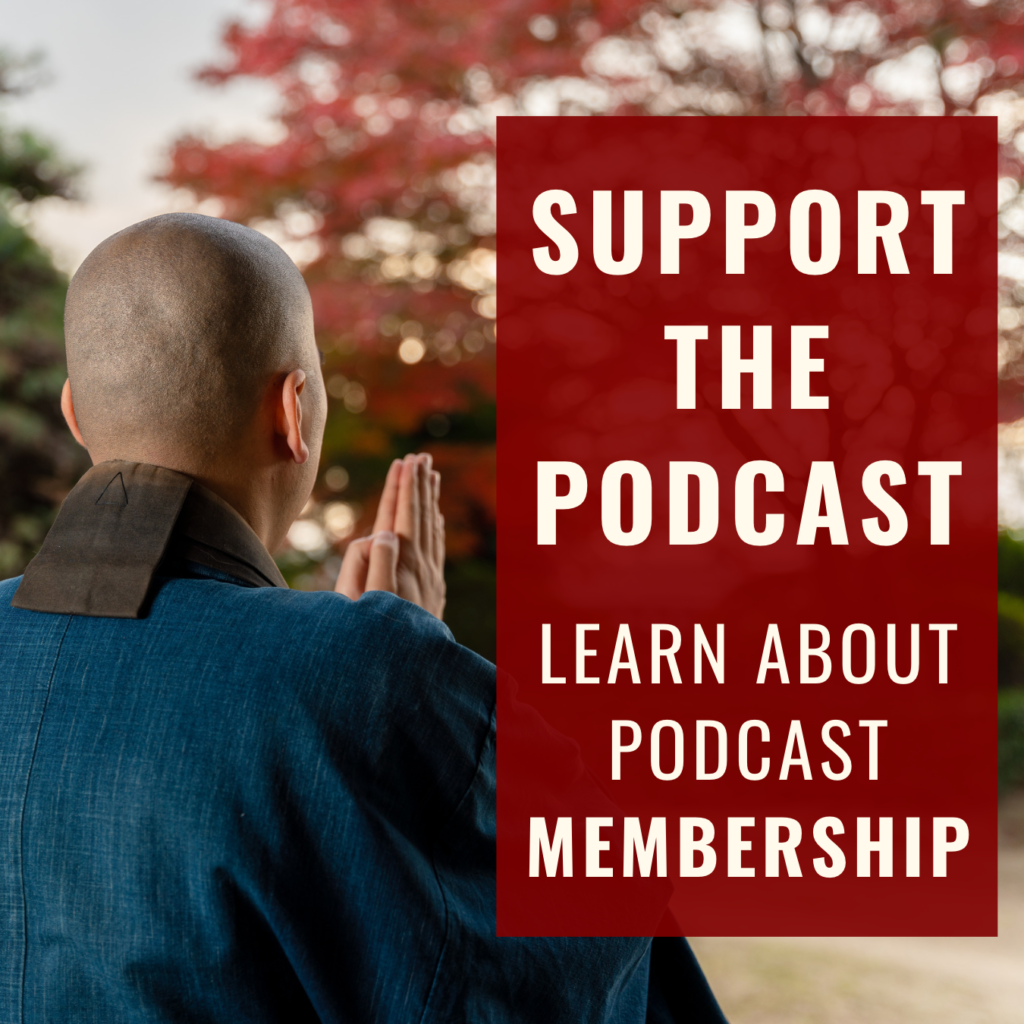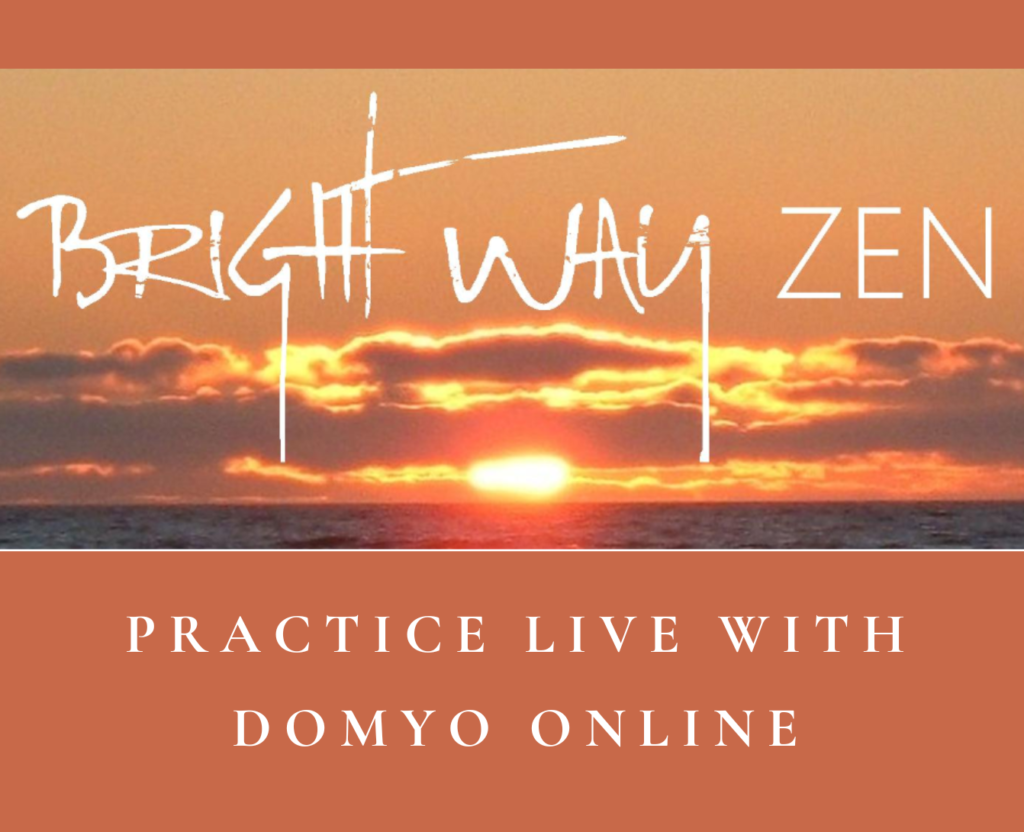
by Domyo | Oct 20, 2025 | Buddhism Today
When should Buddhist communities take public stands on issues that could be seen as political? If politics is about how we make decisions in groups (local communities, towns, cities, states, nations), are Sanghas really be free from politics when they are embedded in these larger groups? Silence can function as tacit approval, so is maintaining neutrality in keeping with our Buddhist values? On the other hand, there are many good reasons for Sanghas to avoid bringing discussions of politics in their places of practice, and I discuss them.

by Domyo | Aug 16, 2025 | Buddhism Today
Since the Buddha’s time, certain practitioners have chosen to leave the household life to dedicate themselves completely to formal Buddhist training. Undergoing a ceremony of ordination in which they took monastic vows, these monks and nuns lived the remainder of their lives within a Sangha – community – of other ordained people. In modern Western Zen, you will find a thoroughly confusing situation where ordained people who live fully monastic lives are rare, most ordained people are called “priests” and live householder lives, and practitioners who are not ordained often teach the Dharma and lead lay Sanghas (functions historically reserved for ordained people). What is the use – if any – of continuing with a tradition of “ordination?” I discuss the value of monks, priests, and lay practitioners in the context of Zen as it is currently manifesting in the United States.

by Domyo | May 31, 2025 | Buddhism Today, Buddhist Practice
In this episode I make the case for accommodations for people with physical challenges, even in sesshin, and then describe a number of tried and tested ways Sanghas can do this. I finish by talking about how to negotiate with a Sangha if you are someone with physical challenges and hope to be accommodated, particularly in the practice of intensive retreat.

by Domyo | May 24, 2025 | Buddhism Today, Buddhist Practice
People with extra physical challenges – disabilities, chronic illnesses, or advanced age – often find it impossible to participate fully in Zen practice without special accommodations. Seated meditation (zazen) can be painful, and the demands of silent meditation retreats (sesshin) can be prohibitive. However, an important part of Zen practice – especially sesshin – is how everyone follows the forms together, doing the same things at the same times. The whole idea is to minimize the need to exercise personal choice, and to use a certain amount of physical discomfort to bring us up against the existential matter of our lives. How can Sanghas support the Zen practice of people with physical challenges while preserving what is supportive to those without them?

by Domyo | Nov 24, 2024 | Buddhism Today, Buddhist Teachings
In a time of political divisiveness, many of us look to the three treasures of Buddha, Dharma, and Sangha for solace, strength, and guidance. I offer a few Dharma teachings I have found useful for practicing in tumultuous times.

by Domyo | Aug 21, 2024 | Buddhism Today
I am on sabbatical for the month of August, so this episode is a live talk* I gave at Bright Way Zen, “Talking about Politics as a Buddhist.” This is, of course, a very timely topic with a major election coming up in the U.S. in just over two months. How can we engage in conversations about what we should do as a group, institution, organization, community, state, nation, or species, while remaining centered in our practice and true to our aspirations as Buddhists? (*Most of my episodes are produced specifically for podcast listeners.)

by Domyo | Apr 15, 2024 | Buddhism Today
Recently, someone submitted a Dharma question for me to address: “I wonder what Buddha would say to us about the crises facing humanity, particularly the suffering of our own making?” I can’t know, but I dare to put some words in the Buddha’s mouth and then present follow-up questions.

by Domyo | May 12, 2023 | Buddhism Today
It’s natural to feel some eco-anxiety as the earth’s natural life-support systems break down. Buddhism clearly admonishes us to refrain from killing, to actively care for all life, and see ourselves as being in the “same boat” with all beings. In what ways can our practice help us stay strong, and how can it help us respond to our climate and ecological crisis in a way that’s consistent with our Buddhist values?

by Domyo | Apr 29, 2023 | Buddhism Today
Eco-anxiety is fear that our earth’s natural life-support systems are in the process of a collapse that will be catastrophic to life as we know it. This fear may range in intensity between a vague, pervasive sense of worry to a debilitating condition. What does Buddhism have to say about eco-anxiety, and what does it offer us if we want to be responsible citizens and true to our aspirations as Buddhists – but we also want to avoid being overwhelmed with fear, despair, or a sense of powerlessness?

by Domyo | Jun 25, 2022 | Buddhism Today
In the last episode, I talked about the new phenomenon of a virtual space for practice, including its merits and benefits. In this episode, I talk about the merits of practicing in a “Dirt Zendo” – a physical practice space, in-the-flesh. I then describe, at Bright Way Zen, we are attempting to create a sense of Sangha that connects and includes anyone who practices with us, regardless of whether they participate in-the-flesh, online (in our Cloud Zendo), or both.















